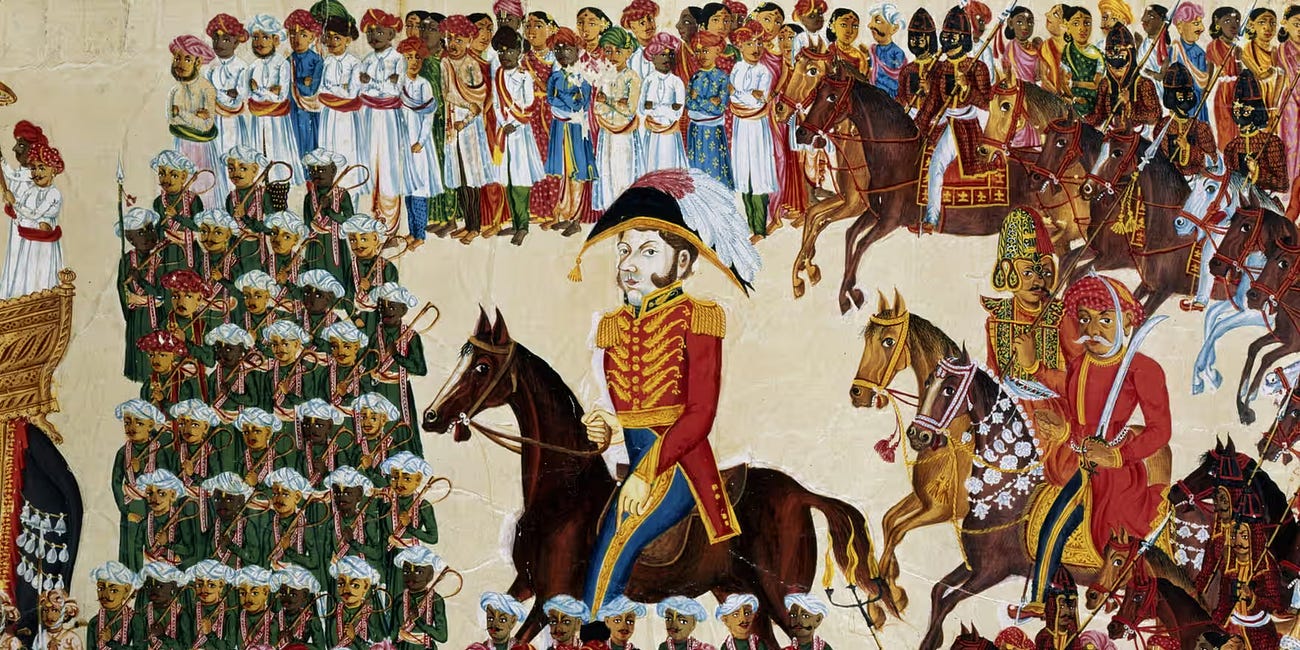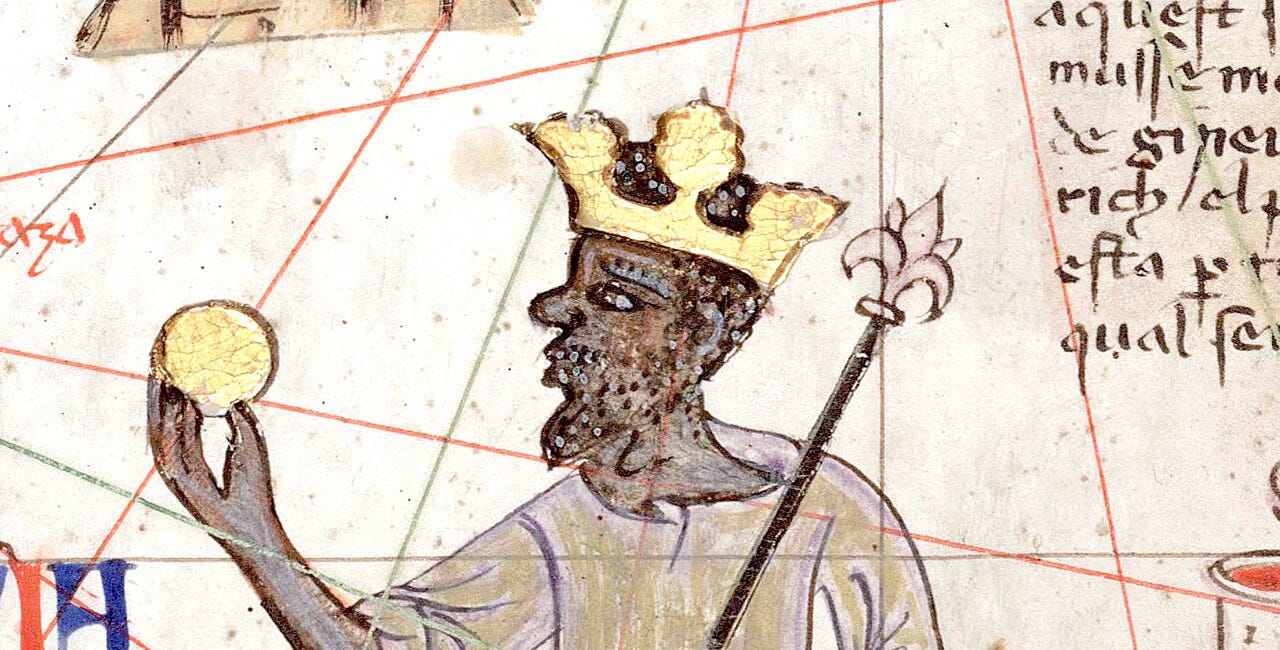Gold, God, and Trade
Review of Rivers of Gold: The Rise of the Spanish Empire, from Columbus to Magellan by Hugh Thomas
This is really two books, in my reading. In the first 450 pages, the author paints a tableau of the how the politics of a newly united Spain impacted first the explorers and then the conquistadors of the Americas. Fernando and Isabel united the Kingdoms of Aragon and Castille in a uniquely successful joint monarchy, cooperating as sovereigns of their respective kingdoms while bringing a highly independent aristocracy under tighter control. They also expelled the last Moslems and all non-converted Jews from southern Spain in 1492. These issues left them little time to pay attention to the explorers, though they (or Isabel) did seem to favor Columbus, who was granted unusually extensive rights. Their stories are successfully intermingled.
Isabel's motives for authorizing Columbus' explorations were complex: spread the faith, open a new trade route, and find gold. While many modern accounts pay attention only to the secular motives – the early voyages were largely financed by private interests – they also included Catholic preachers who were skilled at setting up administrative infrastructures that would endure while Amerindians were herded into a kind of bonded serfdom (encomienda) under local Spanish rulers.
This first contact between cultures is told in fascinating and appropriate detail, leading both to the genocide but also to ethical debates that certainly had some impact. Finally, as the Amerindians were proving poorly adapted to slavery in the gold mines, Thomas also covers the debate that eventually brought slaves from Africa, which completed the demise of the Amerindians in the Caribbean.
As Columbus proved an incompetent administrator, others began to claim their own geographical areas of influence, rendering them ungovernable from the capital in Spain. It is here that wide-ranging experiments begin, from humane to unbelievably savage, all in the name of Christ and gold. Oddly, it appears that their consciences were clear: some fought for Indians' rights, others were content to massacre "cannibals". This is a fairly coherent narrative and worth the price of admission (to page 300 or so).
Unfortunately, Thomas has virtually nothing to say about the economic system the Spanish set up in the Americas. In the view of some scholars, the mines and plantations they set up were for shorter-term profits, if not pure exploitation, exhausting the land and moving on rather than building for the long term, as they were apparently doing in New England. This was one of many questions I wished answered. Instead, what the reader gets are court intrigues extended into the Americas in an uncontrolled chaos.
The book begins to seriously unravel at the accession of Charles V in the remaining 250 pages. Suddenly, the details of the European power struggles and courtly life come to the fore, where there is seemingly little to connect them to the Americas. Indeed, Thomas' coverage becomes erratic, and the reader gets lost in endless details of how many barrels of wine were included in specific cargoes, who was saying what in the policy debates, etc. Bored and confused, I began to yearn for the book to end, that is, about half way through it becomes an incomprehensible slog.
Then it gets worse: in the last 100 pages, Thomas moves into summary mode, covering the conquest of Mexico in 40 pages and Magellan's voyage in about 15. It feels pasted on and superficial, like it was added at the behest of editors or Thomas simply ran out of energy. Finally, the conclusion does nothing whatsoever to tie it all together: instead, he enters into an elaborate description of the economy of Seville – the richest city in Europe for a time – and its administrative apparatus, only implying that they determined how the new empire would be governed but without detailed proof. Extremely disappointing.
This book has an odd mix of excessive detail, lack of analysis, and engaging stories that never quite add up to a coherent narrative. I started it with the greatest enthusiasm – I was reading about a dazzling array of personalities I dimly remembered from middle school texts. Unfortunately, towards the middle of the book I felt lost in all the aristocratic titles, complete cargo lists, painfully twisted theological disputes, and gruesome skirmishes with doomed Indian chiefs. I simply could no longer see where the author was intending to go. It was like he was not just mistaking the forest for the trees, but for individual leaves.
Further, I was surprised at the stuffy hauteur of the book, at once arrogantly academic in its tiring details and pedantic in its spooning out of lessons that are often banal. (Yes, Columbus was a "great explorer", as we repeatedly learn.) In short, in my eyes, the author wrote like a snob and did not exercise the discipline that a good editor should have imposed on him. I would not recommend this book except perhaps to academics.
Related review:
Harsh exploitation: global capitalism's initial steps
The Renaissance marks the first big step toward western ascendance. New technologies – in war and transport as well as the transmission of knowledge – combined with audacious, state-sponsored explorers (or quasi-pirates) to create the first truly global economy. This book is about how this process began, less from a cultural point of view than from a mi…
Selim the Grim, his times, and the Ottoman version of Islam
This is a very fun biography on the brief reign of a political genius whose cultural impact was wide and deep, with resonances even today in Erdogan’s Turkey and Islamophobia. It is a quick read, with both an interesting narrative and an analysis that fleshes out how the people of his time saw the world. Even as a history enthusiast well acquainted with…
Riveting narrative on greed, subjugation, and despoliation
This is a book about the ultimate prototype for corporate greed, the first joint-stock company that conquered and plundered an entire subcontinent. It is not about economics or business, but about private empire-building, virtually without constraint, with shareholder profit as the principal motive. Along the way, the East India Company attacked with su…
Intro to Spanish history and culture
This is a sophisticated vacation book, best to take with you on a visit if you want to know a bit more than a guidebook would offer. The book tells great stories, interprets events to a degree, and views art and culture as a reflection of society at the time. While politics and war are somewhat neglected, the principal events are covered fairly well. Th…
Putting Africa at center stage
Howard W. French wishes to correct the impression, as popularly taught, that Africa was a backwater, an obstacle on the way to Asia, or was so underdeveloped that it was there to be exploited by Europeans. To do so, he sets out to prove that slavery was instrumental in the birth of “modernity”, a perspective that is slowly gaining recognition in academi…









